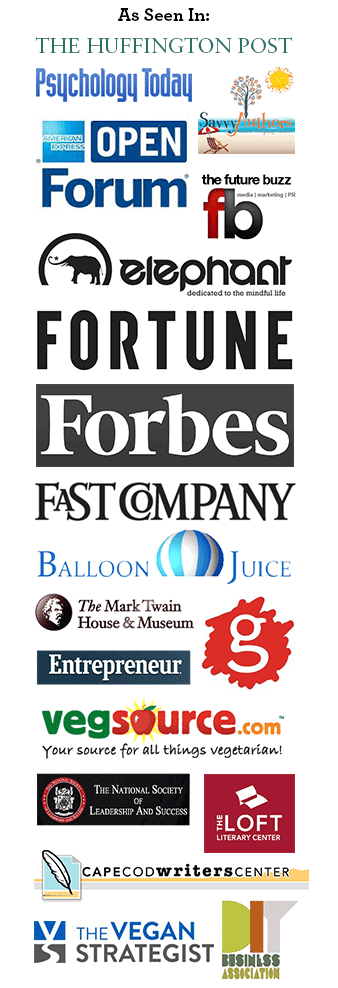How to Recognize Situational Perfectionism
- You’ve invested in your writing or other dream – say, by taking a class or buying a piece of equipment – and think, “Now, I’d better make that pay off.”
- You’ve just finished a workshop or class, and are feeling all, “Now, I’d better do something fabulous.”
- You’ve committed to your dream by, say, taking time off from your job or hiring a babysitter, and are now thinking, “Now I’d better make the most of this precious time.”
- You’ve had a success, and are telling yourself, “Now I’d better do even better. Everyone’s watching me.” (Second-Novel Syndrome is thus an example of situational perfectionism.)
- You have a record of prior of early success, and are now feeling like you have to keep living up to that high standard. (Same “everyone is watching” imperative, plus you’ve probably never even had the practice at coping with failure that the rest of us stragglers have had!) And,
- You've had a "failure" and are now extra worried about making another one. (Or perhaps you feel you have to somehow atone.)
Sense a pattern? It's all those "now's." Perfectionism is impatient and short-sighted; and those qualities, combined with its terror of failure, means that it requires its success NOW.
Perfectionism is also a scarcity mentality, and so when a perfectionist catches any break at all--e.g., a gift of time or other resources--they feel an urgent need to "justify" it. (To be clear, no justification should be necessary.)
Whereas self-compassion (a.k.a., nonperfectionism) always strives to takes the long or broad view. It hopes for success, of course, but holds that hope lightly--as opposed to perfectionists, who hold onto their hopes with a death grip. Nonperfectionists always maintains a proper emotional distance from their work and avoid getting emotionally caught up in any one project or work session.
And they welcome gifts and lucky breaks when they come along.
Nonperfectionists, in other words, have perspective and proportion. Theirs is the mature, realistic, grounded, but optimistic viewpoint that fosters productivity.
Here’s another example of situational perfectionism:
It was April of 2009 when everything changed. I had been on twitter almost two years at that point, as @abigvictory, using it mainly as a platform for crude jokes and observations about sports….
What happened after I went from 1,000 to 28,000 followers in a week to the magic one million followers just a few months later?
What ensued was this: A little freaking out, a lot of stage fright and performance anxiety. I felt the need to tweet often even though I had just weaned myself from about 100 tweets a day to 15. Then I worried what I should tweet about. Do I just continue tweeting toilet humor? Do I just tweet a couple of pithy remarks during the day and leave it at that? Do I have to watch what I say? I’d never before in my life had been popular. I was that kid, the one picked last for sports teams, the one at the far end of the lunch table picking at her sandwich while she sat alone. Here I was with a million people listening to me, waiting to see what I would say next. I was overwhelmed with this sudden thrust into the internet limelight….
Now I had a million strangers watching every word I tweeted. What should have been a “Wow, this is exciting!” moment for me became a moment of sudden terror instead. I felt like I suddenly moved into a glass house and all my neighbors were armed with rocks.
The author, Michele Catalano , reports that she went through a period of being “riddled with self-doubt” before finally deciding to return to her pre-fame Twitter roots:
So I went back to twitter with a renewed sense of how I was going to use it. I was going to go back to the way I was before I was put on that list. After all, wasn’t that kind of engagement and banter what got me put on the list in the first place? I would go back to using twitter as a place to hang out with friends and acquaintances. And I would recognize that while I had 920,000 followers, about 800,000 of them were bots, marketers and SEO specialists who followed ten thousand people and would never read a word I tweeted.
The pressure was off and the fun was back on.”
Join My Mailing List For The Latest News And Events


Greetings from Hillary!
Welcome! My goal is to help you recognize and overcome any disempowering forces in your work and life so that you can reclaim your joyful productivity and achieve your personal and professional goals more quickly and easily than you ever imagined! Thanks for checking out my site, and I always welcome your comments, suggestions, and questions at hillaryrettig@gmail.com.
Like my page on Facebook!
Follow me on Twitter!
The single best thing you can do to support me and my work is to review one of my books on Amazon or elsewhere. Thank you in advance!

Recent Comments